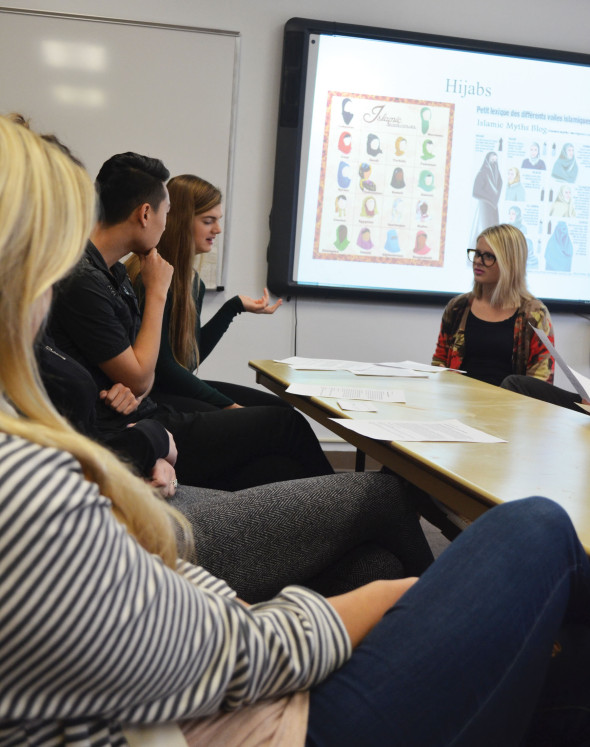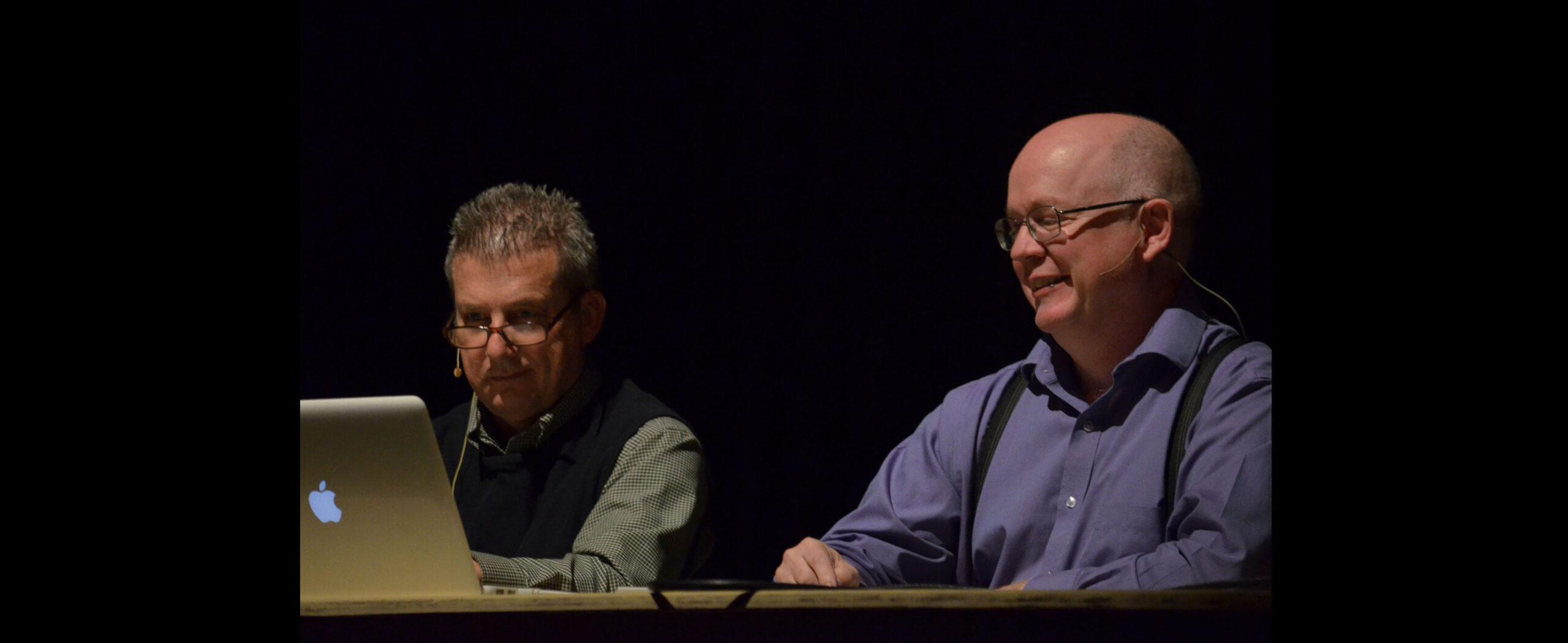The need for open communication in educational, faith communities raises the question of whether environment or personal factors hinder valuable conversations
“Follow the path of the unsafe, independent thinker,” said early 20th century American politician Chauncey Depew. “Expose your ideas to the dangers of controversy. Speak your mind and fear less the label of ‘crackpot’ than the stigma of conformity. And on issues that seem important to you, stand up and be counted at any cost.”
While the phrase “express yourself” has made it into songs, advertisements and many other facets of culture, it’s not always easy to share your views in our society and in our school. It can often be just as difficult, if not more difficult, to listen to the views of others.
The dangers of peer pressure when it comes to alcohol or drugs are often considered, but what about a person’s opinions? What is the cost if we fail to communicate with our peers?
“The imperative to listen openly and honestly and respectfully to positions different than our own is a must, especially in an educational community,” said the Rev. Dan Bergstrom “but that’s also true for a faith community.”
The desire to foster healthy communication at the upper school led Bergstrom and his counterpart, sacred studies teacher Jeffrey Crafton, to present a chapel on Oct. 23 about healthy dialogues.
“We thought now would be an important time to revisit it and we talked about it at length,” said Bergstrom. “We really put a lot of time into what we wanted to do and our goals for the assembly.”
In order to maintain true community, open communication is a necessity, whether it be at lunch, in a classroom or even online.
“Not only in our culture, but in our churches a lot of issues are rising that get people really bent out of shape,” said Bergstrom. “Instead of having a respectful, humble, honest dialogue about issues, people become polarized and any time a subject is brought up that is at all controversial, they dig in and they become rigid in their thinking.”
This type of rigid environment can often deter openly expressing beliefs as well.
“[In] high school it’s really hard to speak your mind,” said senior Hayoung Lim.

Listen Learn Speak members (left to right) senior Kalli Gillmer, senior Hayoung Lim, junior Tory Kronschnabel , and senior Payton Kinkead discuss hijabs at their first meeting on Dec. 9. Photo by Maddie Binning.
Because of this, Lim decided to create a discussion group, Listen Learn Speak, with senior Payton Kinkead and junior Lucy Awe.
“[I felt] specifically our school had a lack of open dialogue within students,” said Lim. “Students [are] very complacent with their beliefs just because their parents told them or they heard it on the TV. They [don’t] really create their own moral views or opinions on things. I feel that’s a really important thing to discuss.”
The goal of the group is to provide a safe space for students and improve the dialogue within the Minnehaha community.
“There are so many students out there who don’t feel comfortable expressing themselves,” said Lim. “When you have a place where you can have open dialogue and express your opinions and views, that’s really helpful in this time in high school when you can be so pressured to think a certain way and act a certain way. Not only will it allow you to feel more free, but it also helps you better understand yourself and better understand the people around you.”
For some like senior Gracia Gilreath, who has attended Minnehaha since kindergarten, the school has been a positive environment to hone her beliefs and communicate openly.
“Minnehaha conveys an environment that encourages different viewpoints,” said Gracia Gilreath. “Classes like Capstone, students are encouraged to profess their own opinions and beliefs and understand how others think. I think there’s an assumption of judgment [that keeps people from speaking out].”
Sometimes fear of judgment and insecurities can keep a person from being involved in meaningful dialogue.
“It’s really hard work,” said Bergstrom, “because when we encounter controversial issues, our human nature causes us to put our guard up. Whenever our guard goes up, we become a little defensive and we become polarized.”
Our guard can often go up for reasons of acceptance as well. In classrooms this pressure can be more apparent, but the pressure also exists among self-selected friend groups.
“Students feel very deeply that they want to fit in with the group,” said social studies teacher and debate coach Nathan Johnson. “[It’s] a combination of your environment and your own personal sense of what’s important [as well as] your insecurity about it that combines to make it difficult for a student to express something that might run counter to what their classmates are thinking.”
Johnson sees the hesitance of some students to express themselves from time to time in class and it often comes down to a matter of experience.
“In debate class right now, we’re having a student congress and we’re talking about school issues,” said Johnson. “There’s a significant difference between the number of freshmen and the number of seniors who are willing to put an opinion out there. A lot of it is personal confidence. Seniors, by that point in their career, are a little bit more willing to say something that might not be instantly popular with the group.”
Seeing both sides of an issue is another way that debate can improve communication skills.
“Debate does help because students have to argue both sides of controversial issues,” said Johnson, “so you are put in the situation of advocating things from the other person’s perspective and from your perspective. Having done that and having experienced that does enable you to engage in these conversations better.”
Johnson’s general suggestion for being able to fully participate in meaningful conversations is to simply practice.
“We learn by doing,” said Johnson. “Many times the way to become more confident and secure is to actually do it. Be involved in a conversation even if it makes you feel uncomfortable because if you wait until you’re comfortable to engage in a conversation, it won’t happen.”

